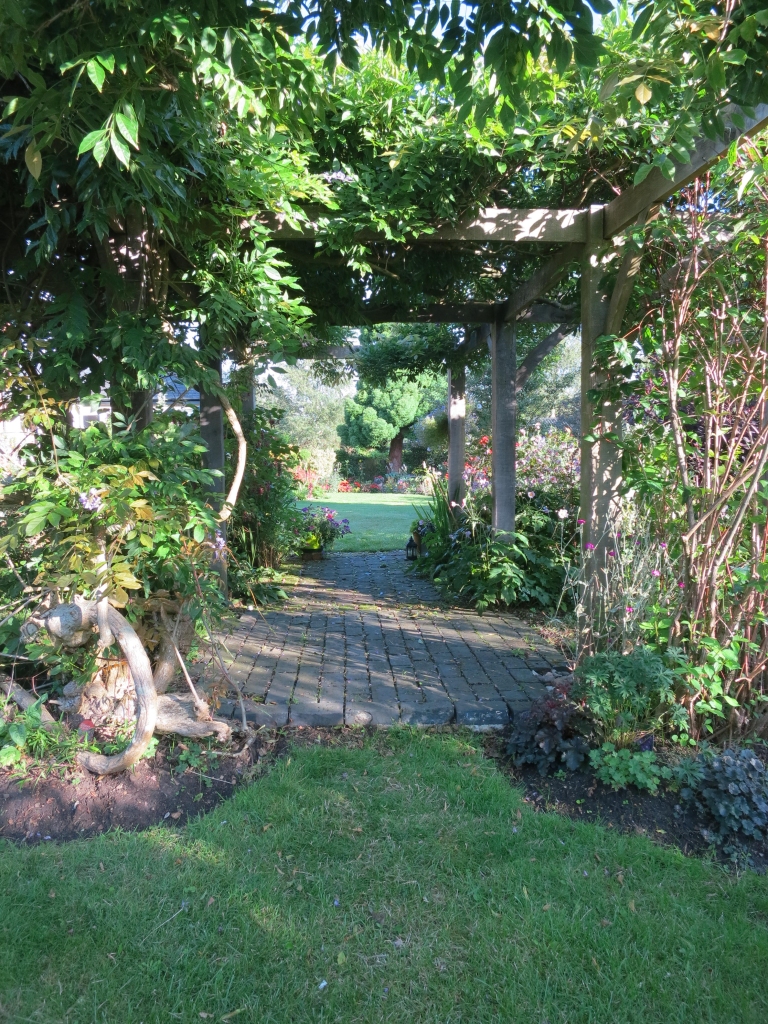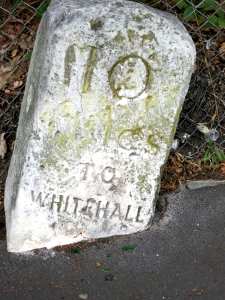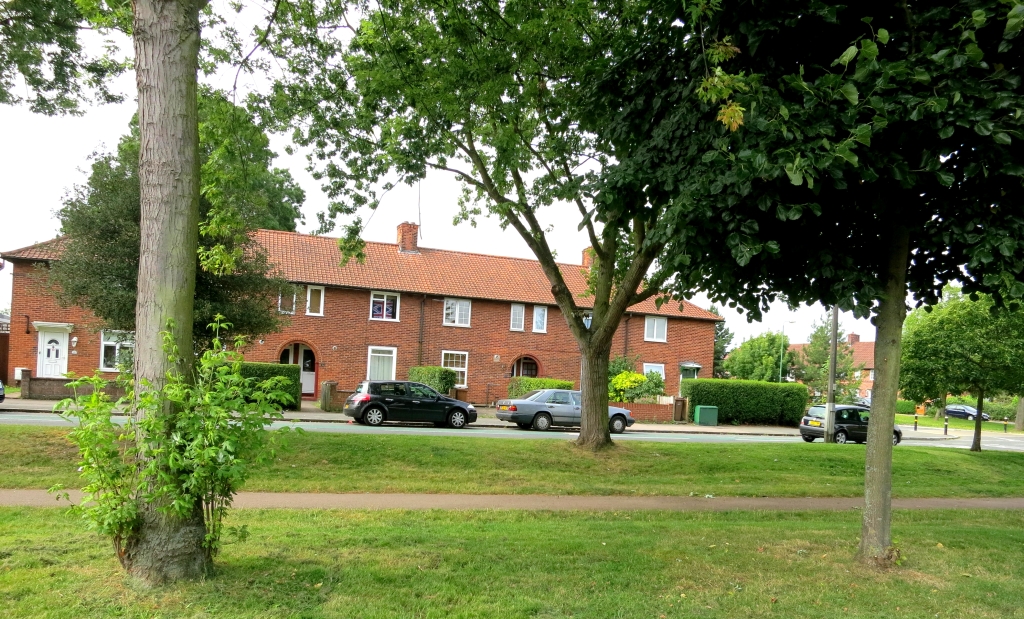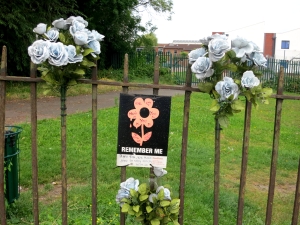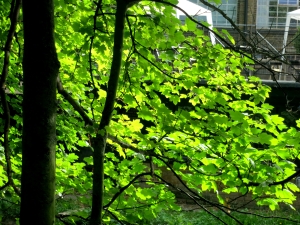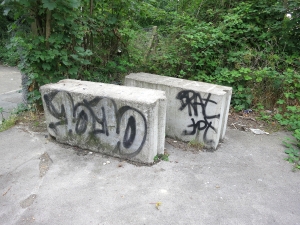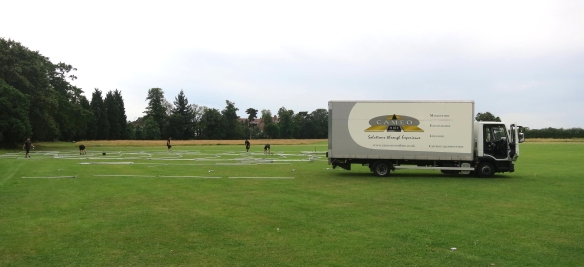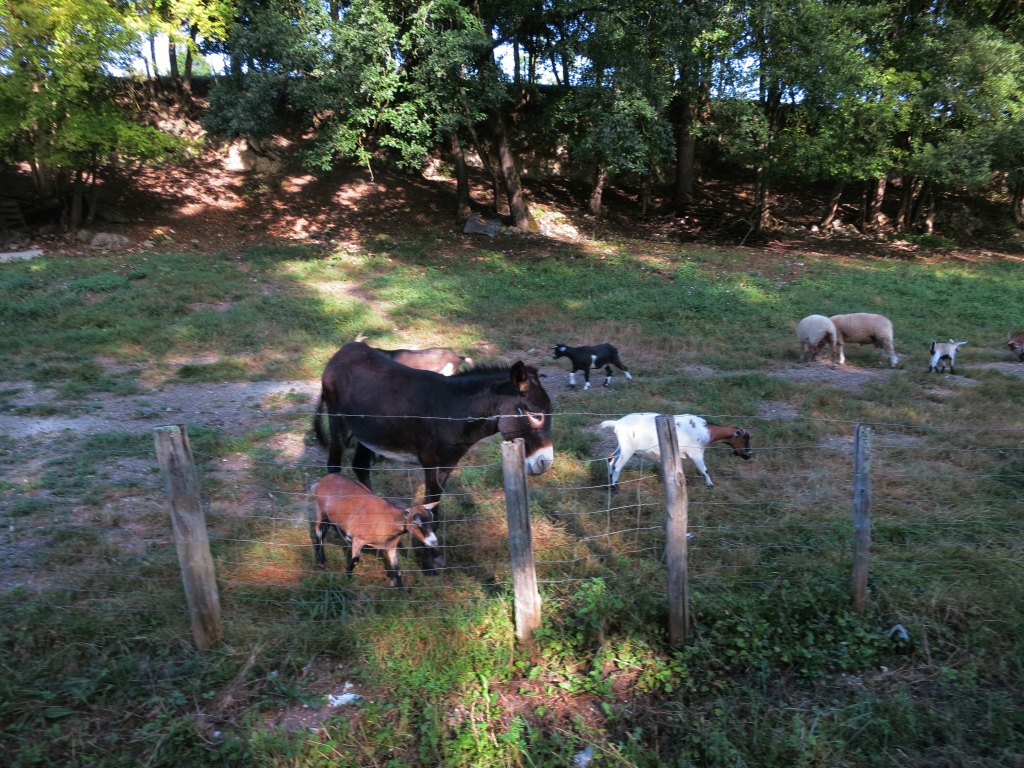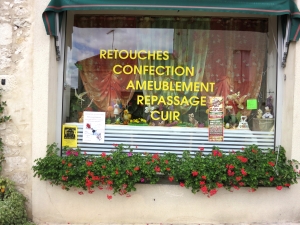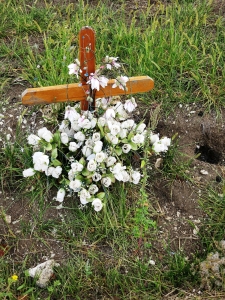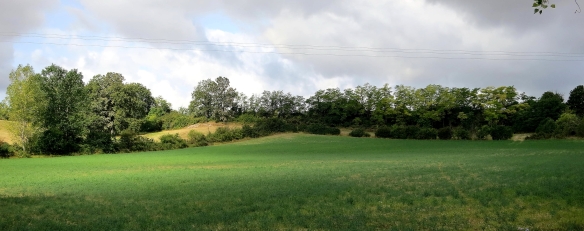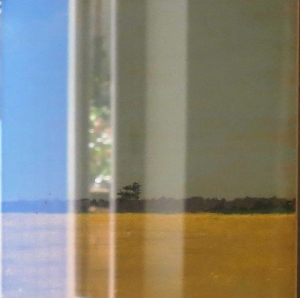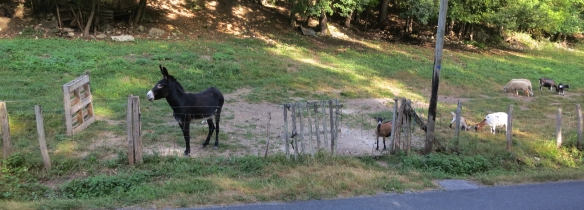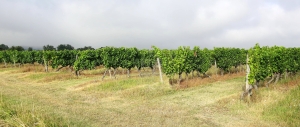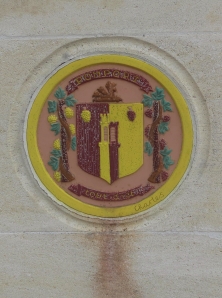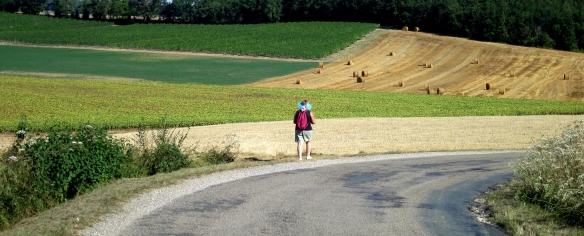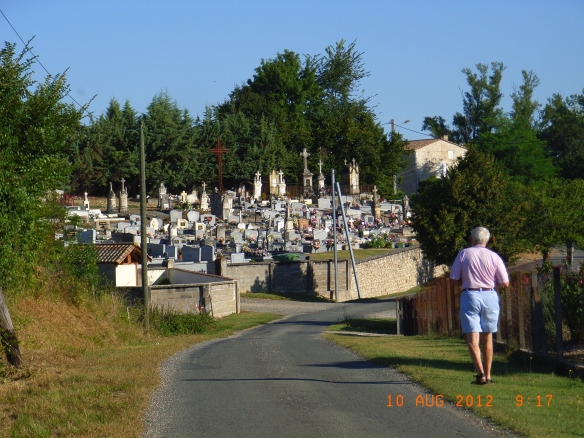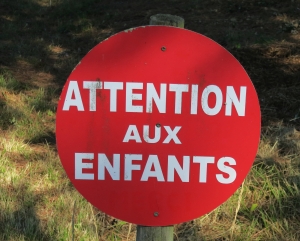Today we continued with yesterday’s gardening projects. Jackie did a great deal more edging and weeding of beds, planting some flowers we had brought with us, and others from last week.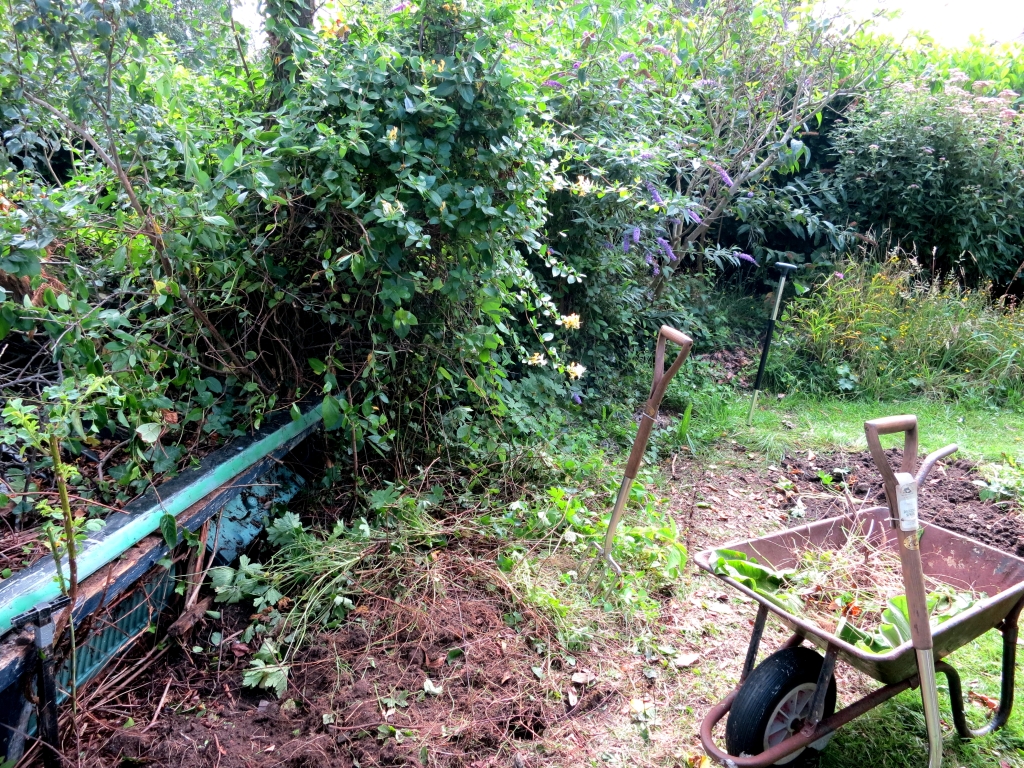 I managed to get somewhere near halfway with the new bed project. So much for completing it this weekend.
I managed to get somewhere near halfway with the new bed project. So much for completing it this weekend.
Elizabeth has been suffering for two and a half weeks with sinusitis. For anyone who has not experienced it, this is an extremely painful inflammation of the sinuses, or cavities, in the face. Although I had a nasty bout of it during my first visit to Sigoules this year, keeping me in bed for the whole ten days I was there, it is otherwise something which I have not suffered for many years. It was, however, a frequent visitor to me during my teens and twenties. I was therefore pleased to see that my sister was clearly on the mend this evening. She even went out and weeded the ‘hot bed’. Since this was a very hot and humid day she had otherwise been on catering duties, especially the provision of drinks.
Each time we were given a drink, and, of course, at lunchtime, I took the opportunity to have a break. I encountered yet more small trees, almost all suckers from next door’s damson tree. My method of extracting them was described yesterday. There was also quite a bit of well-established ivy, with thick tendrils and roots, which had to be removed. 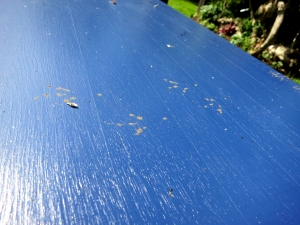 Our friendly robin left his muddy footprints all over one of Elizabeth’s freshly painted tables.
Our friendly robin left his muddy footprints all over one of Elizabeth’s freshly painted tables.  When I tired from pulling up small trees and self-rooted strands of honeysuckle, I wandered over to look at the ‘hot bed’ and remind myself that twelve months ago that had been a huge clump of bamboo which had taken three months of weekends to remove. I would not have been able to achieve that clearance with the tools I am using on what is to be the ‘scented bed’. I had borrowed a grubber axe from Geoff. Striking the root clusters with garden forks or spades was about as effective as digging into concrete. This particular implement made the task possible, although Elizabeth and I dug it over several times, always coming up with roots we had missed last time, before we deemed it ready for composting.
When I tired from pulling up small trees and self-rooted strands of honeysuckle, I wandered over to look at the ‘hot bed’ and remind myself that twelve months ago that had been a huge clump of bamboo which had taken three months of weekends to remove. I would not have been able to achieve that clearance with the tools I am using on what is to be the ‘scented bed’. I had borrowed a grubber axe from Geoff. Striking the root clusters with garden forks or spades was about as effective as digging into concrete. This particular implement made the task possible, although Elizabeth and I dug it over several times, always coming up with roots we had missed last time, before we deemed it ready for composting.
This afternoon Danni joined us. She spent most of the time in a recliner sunbathing and reading ‘Park Culture’, when she wasn’t being frustrated by being unable to access You tunes. But she had volunteered to cook for us this evening, and she works very hard at her sports massage practice so is certainly entitled to spend Sunday afternoon relaxing.
She spent most of the time in a recliner sunbathing and reading ‘Park Culture’, when she wasn’t being frustrated by being unable to access You tunes. But she had volunteered to cook for us this evening, and she works very hard at her sports massage practice so is certainly entitled to spend Sunday afternoon relaxing.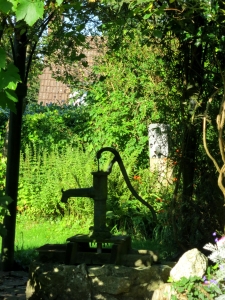 ‘Park Culture’ is a most impressive new magazine produced by a couple of friends of Andy’s. His band, ‘Circle of Reason’ is, incidentally featured. Until now, there has, apparently been no magazine focussing on artistic events in the New Forest Area. The September issue of the journal was issued today. It is the first. There is coverage of literature, art, music, drama and other forms of artistic expression. This free publication has the quality of production one would normally be expected to pay for. There are interviews with artists and performers, illustrated in colour on good quality paper, with useful event information. The name comes from the fact that the New Forest is a National Park. Perhaps this is why it has such a rich artistic life. The website of this enterprise is www.culturapress.co.uk
‘Park Culture’ is a most impressive new magazine produced by a couple of friends of Andy’s. His band, ‘Circle of Reason’ is, incidentally featured. Until now, there has, apparently been no magazine focussing on artistic events in the New Forest Area. The September issue of the journal was issued today. It is the first. There is coverage of literature, art, music, drama and other forms of artistic expression. This free publication has the quality of production one would normally be expected to pay for. There are interviews with artists and performers, illustrated in colour on good quality paper, with useful event information. The name comes from the fact that the New Forest is a National Park. Perhaps this is why it has such a rich artistic life. The website of this enterprise is www.culturapress.co.uk
Danni produced a very tasty beef stir-fry meal. We finished yesterday’s bottle of Roc Des Chevaliers, Bordeaux 2010. Jackie had a small French beer then drove me home after one last tour of the garden.


